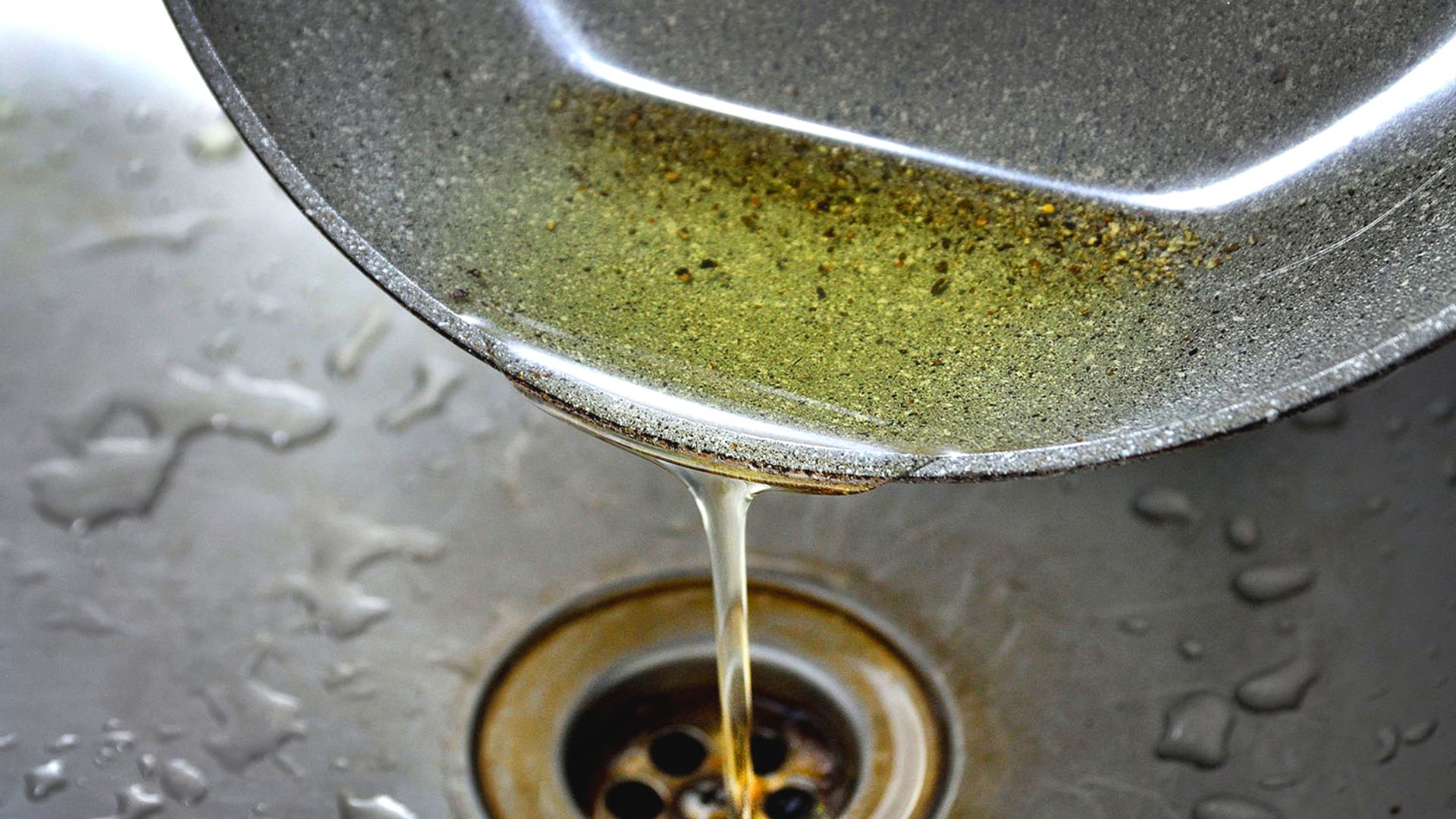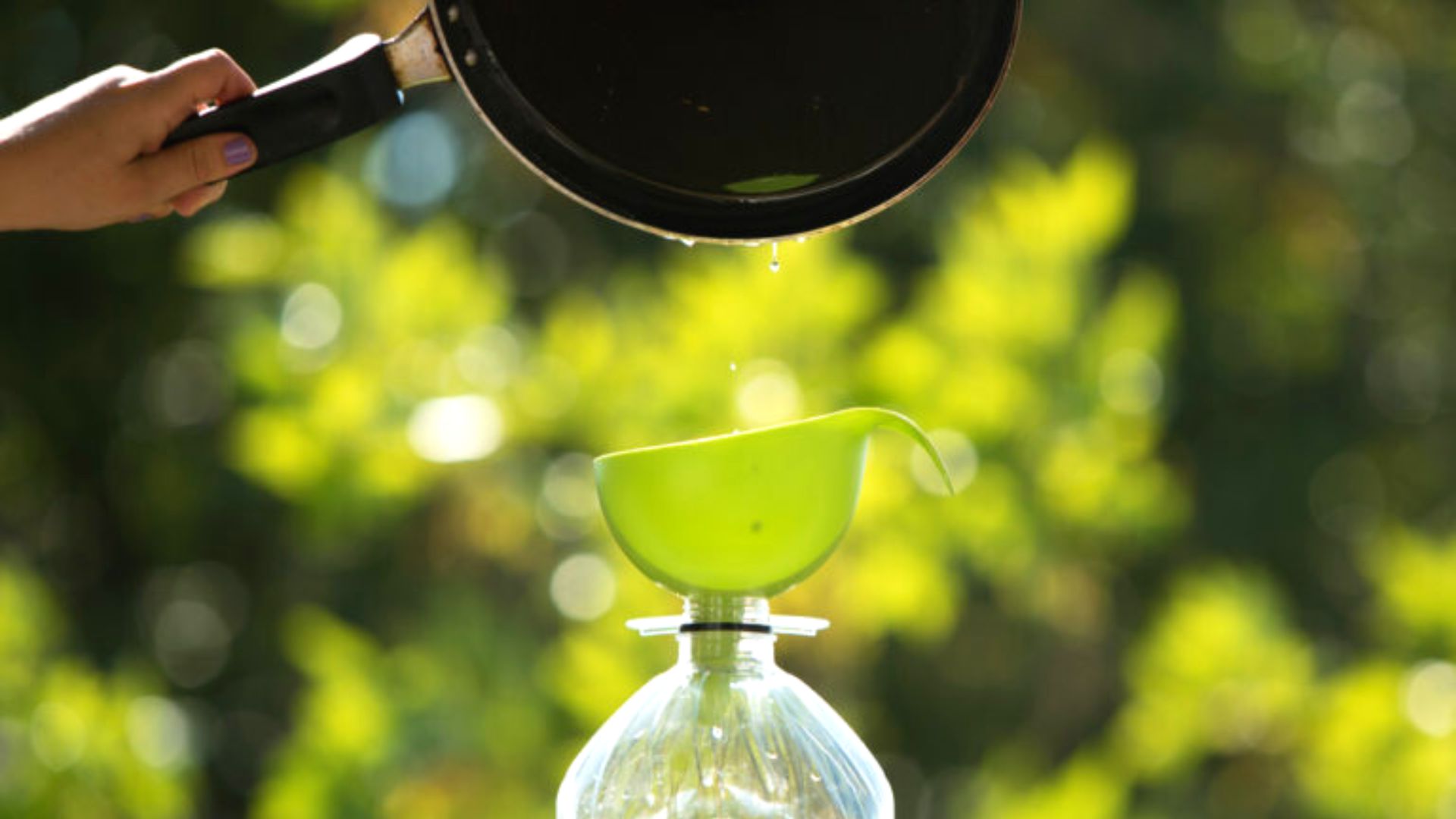7:00AM to 5:00PM
While doing the dishes, you might pour the leftover cooking oil down your kitchen sink before washing the pan. Like most homeowners, you might consider this the easiest way to dispose of used cooking oil instead of throwing the hot oil in the trash bin. But there’s a better way to consider cooking oil disposal. Have you ever thought about what happens when pouring cooking oil into your sink passes through the drain and the sewer lines?
If not, let us tell you that cooking oil is one of the culprits of clogged sinks and blocked drains. You are right: it’s not easy to dissolve fatty acids; thus, when you pour cooking oil into your kitchen sink or garbage disposal, you get oil clogs and blocked pipes. Fixing a severely clogged sink and clogged drain pipes costs more than the rising oil prices. Besides logging, the accumulated oil backs up the sewer system and damages the plumbing system, costing more than the high crude oil prices and global oil prices. And when that happens, you’ll have to shell out a lot of cash to replace the pipes and repair the plumbing lines for proper functioning.
To prevent you from making this mistake, we’ve curated this informative guide to explain practical ways of disposing of used cooking oil.

When oil or grease is poured down the drain, it coats the pipes and turns into a sticky blob within minutes. Without a doubt, the sink starts clogging, hampering your day-to-day activities.
Gurgling sounds or foul odours from the sink are some telltale signs of a clogged or malfunctioning drain. If you notice any of them, you’ll have to clear the clog as soon as possible to avoid worsening the situation.
First, pour half a cup of baking soda down the kitchen sink, followed by white vinegar. Cover the sink adequately for about ten minutes, then pour one kettle of boiling water.
Baking soda and vinegar unclog the drain by turning the fatty acids into soap and glycerin. However, carefully pour the two ingredients, or the process may lead to burns or injuries.
Now that you know that cooking oil should never be poured down the kitchen sink, you must wonder how to dispose of it. To save some hassle, we’ve enlisted three effective ways to dispose of oil, grease, or fat while washing your utensils.

The best way to dispose of oil is to empty it into a sealable container and throw it in the trash bin. You only need to pour oil into the container and use a paper towel to soap up the remaining oil in the pan. Allow the cooking oils to cool for some time so the cooking oil hardens. Then, fasten the lid when it solidifies. However, tighten the lid properly to ensure the container doesn’t open.
Some cities recycle cooking oil, which is another way to dispose of cooking oil. Store it in containers and drop it off at a local recycling centre for further use. Even for this, you’ll have to use a sealable container to store the oil so that it doesn’t spill and cause harm to the environment.
For those unfamiliar, recycled oil is often used as an alternative to diesel fuel. Therefore, dumping it at a recycling centre is one of the safest ways of disposing of cooking oil. It is also used in cosmetics, livestock feed, and pet food.
If the cooking oil is small, it won’t be possible to dispense it in a container and dump it at a recycling centre. In such cases, absorbent paper towels will come to your rescue. Before washing the cookware and dishes, wipe the utensil to remove oil from its surface. This way, the leftover oil won’t clog the sink.
While oil sits atop the list, there are some other things that you must never pour down the drain, which are as follows:

With that, we’ve reached the end of our guide.
Pouring oil down the drain can lead to clogs, so homeowners must always consider alternative disposal methods. Put the cooking oil in a container, throw it in the trash bin, or send it to a recycling centre.
Since clogged drainage systems can damage the plumbing system and, consequently, the foundations of your property, make sure you reach out to professionals without delay! Contact our Gold Coast expert plumbers for blockages in your kitchen and bathroom drains and toilet, natural gas emergencies, and other plumbing emergencies! We have the cost-effective solutions you need. Call us now!